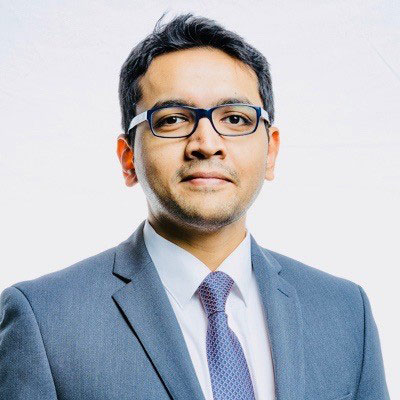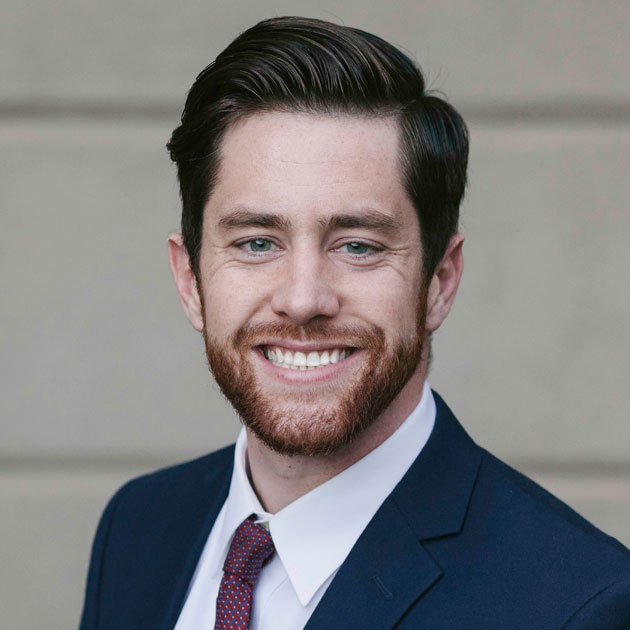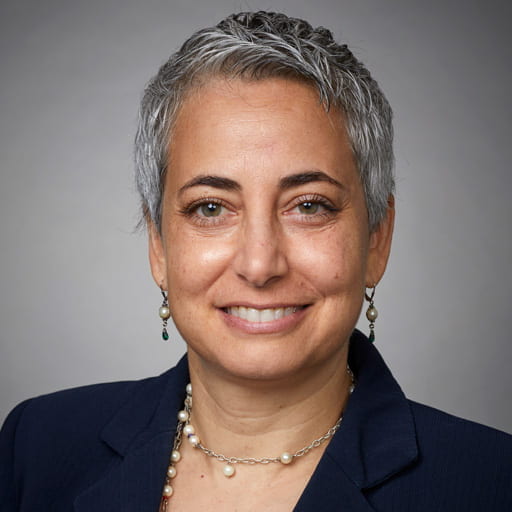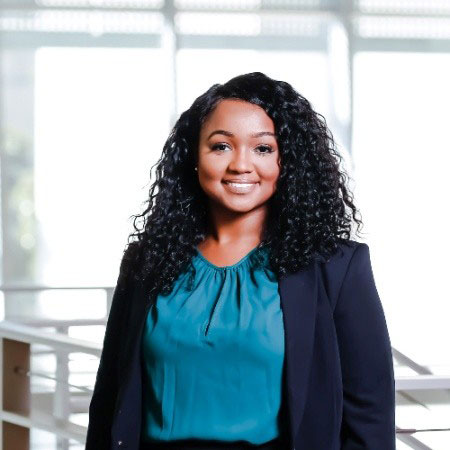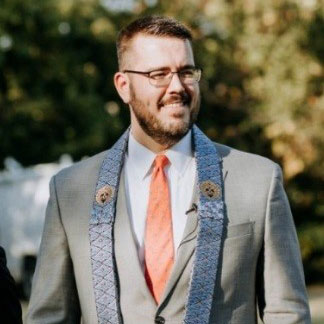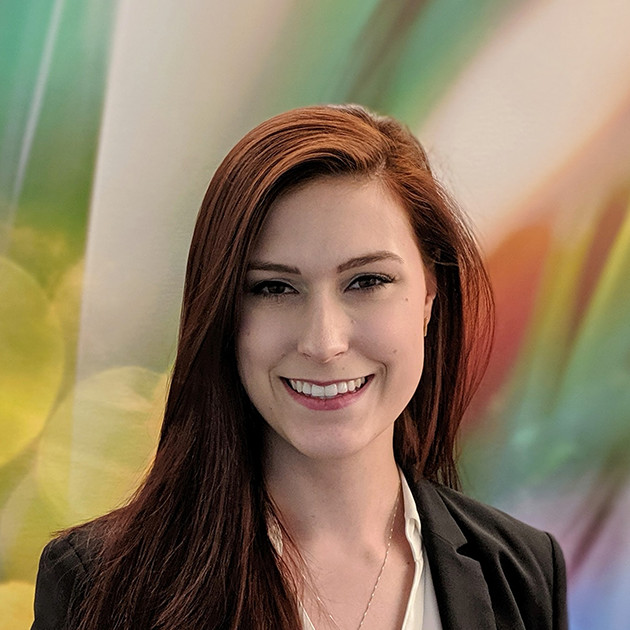
In this episode, host Lisa Shatz, assistant dean and director of the MBA Programs at the Naveen Jindal School of Management at The University of Texas at Dallas, welcomes Bonnie Hurst, MBA’20, senior project leader at Methodist Health System in Dallas-Fort Worth. Hurst discusses her role at Methodist as a data analyst and how the UT Dallas MBA degree prepared her for the role. She also discusses how she overcame adversity while a student in the program as well as the most valuable skills she learned in it.
Transcript
[Jimmie] This is yet another MBA G.O.A.T., a podcast featuring conversations with a greatest of all time MBA alumni from the Naveen Jindal School of Management at the University of Texas at Dallas. We are here to celebrate the outcomes of graduate management education and to identify remarkable examples of how the MBA program here at the Jindal School has transformed the lives for our alumni. Now, here’s Lisa Shatz, Assistant Dean for the Jindal School’s MBA program. Take it away, Lisa.
[Lisa] Hey, you guys, welcome back for another MBA goat podcast. So happy to have Bonnie Hurst with us today. Bonnie is a relatively recent grad from the class of ‘19 but graduated in May of 2020, with the MBA and the Masters in healthcare leadership and management. Welcome, Bonnie.
[Bonnie] Thank you for having me, Lisa. I’m very excited to be here.
[Lisa] I’m excited to have Bonnie here, and just so the audience gets a little bit of insight. When we do these, there are various levels of interaction I’ve had with the students that I’m interviewing, but I know Bonnie very well. Her preparation took very little effort on my part. I remember so many things about Bonnie because she is definitely a personality.
[Lisa] And a great one, she is somebody that when you met … when you meet you, you very rarely forget. So I’m so excited to catch up. Bonnie, how have things been at Methodist Health Systems?
[Bonnie] You know, so things have been going really well. I know a lot of people may be thinking about when they think about health care, they think about the COVID pandemic, in health care, it has been a big thing there. But in my role in healthcare in particular, is actually on the data side of healthcare. So I work in a department called performance analytics under the role of clinical effectiveness and patient safety. So I work a lot with data. So it’s been very interesting since I started in December of 2019. In my role, it’s been very interesting to see the kind of the pre- and the post-COVID data that has come along and how that’s affected patient care. But it’s been it’s been very challenging, and it’s been very rewarding, and I very much enjoy what I’ve been able to learn through my position.
[Lisa] So you’re one of those students, and this is not unusual, that got an MBA with a focus on healthcare, and then you did an MS in healthcare, leadership and management. So nowhere in there, do you have a degree in data analytics. And yet, you know, when we talk about what you do, it’s day-to-day to-data, to talk a little bit about that. Because, you know, not just in healthcare, it seems like in every degree anyone is getting that is such a pivotal part, so talk a little bit about data and analytics, and what exactly you learned in school, and how has that helped you in your role currently.
[Bonnie] So I’ll start off by saying that I was never a data person until my last semester of college when I had some personal stuff going on in my life, and my father ended up passing away. And I think I really, I kind of gloved on to data as like a grounding thing. But if I, if I had not had the prior training through my MBA program, and my MS program of statistics, and excel in data analytics, and all the training that’s provided through that, through the program, I wouldn’t have had a good foundation on which to launch my newfound passion in my career. So that’s one thing I’ve really enjoyed about the MBA program is that it’s a very well-rounded education. And that really gives you many, many opportunities throughout your career to pivot if need be, like I ended up doing. In healthcare data is so incredibly important, and it is absolutely the future of healthcare. So it’s been very interesting to see how the education that I received through my MBA in my MS program, as well as my own personal passion that I discovered for it have changed the direction of my career and how much I’ve actually been able to do with it.
[Lisa] So you actually had a little bit of a benefit coming into a program where you weren’t necessarily picking to study something analytical, but you ended up taking analytics classes. But I think you had a little bit of a benefit in that you were a Neuroscience Undergrad. So clearly, you have an analytical mind and had a lot of some quantitative background. I’m guessing that when you were in those classes, you were in those classes with a lot of complete data geeks. So what advice would you give for our students who are coming in and maybe they, they don’t have a math background or they don’t have a business background or statistics, but they’re really interested in this field? Did you find that people without that background somehow survived, and were able to still get that background analytics like you did?
[Bonnie] So I would actually say in a way that people without a statistical or math or analytics background, almost have an advantage over people who do. And that’s because the people who do not have that type of background are often better able to tell the story of the data, because it’s very easy to get lost in the analysis and lost in the data and then not be able to actually tell the layman what it means. So for me, I didn’t have a strong scientific background, but I was not all in the data like I am in my day-to-day career now. And I’ve found that the ability to tell that story and to talk to somebody about the data and not use jargon, and not get really high level and things like that is beneficial to me, because I know what it’s like to be confused and to be lost and so I can avoid the pitfalls that I often find some of my technical counterparts dealing with, because I’ve been in their shoes. Data is all about learning to love the story and learning to be able to interpret the story of what it’s trying to tell you. And I honestly think for analytics, all you need is a passion. You can learn everything else.
[Lisa] But that is a great perspective. I actually hadn’t, hadn’t thought of that before. But that’s a really good perspective. So I’m going to go back, I don’t know if this is a question so much is I’m going to just go down memory lane, when you first came to talk to us, Bonnie, you didn’t have any work experience? I think, if I remember, right, I think we told you, you are going to get more out of this program, if you go get some work experience. Am I remembering that right?
[Bonnie] Yes, you are.
[Lisa] So you went you worked for? We told you a year, I think you, you like the day you hit a year, you’re like, okay, I’m ready.
[Bonnie] That’s correct.
[Lisa] But when I think about like kind of you coming into the program, you are so different in a way for most MBA students who really come in, a lot of our students come into the program, and they really don’t know what they want. And it’s kind of a discovery phase, and they take a while to kind of come, you know, know what they’re going to do and get their bearings and figure out those trends, where you came into their program really strong, you came in number one, knowing what you wanted to do. And if I remember right, you were in the top 10 of our showcase, which is a competition we have almost right off the bat, I think, I think that competition was maybe in the first two weeks of lead camp or maybe a week later, it was right off the top. And you know, here comes Bonnie, who has not a whole lot of work experience, one of the younger ones in the class. And you, you know, took that competition. So you came in really strong to the program. And what do you think it is that allowed you to do that? What, what was it that when you got here, you just kind of eased into it so easily?
[Bonnie] So I have found in my life, that in everything I do, I’ve never necessarily wanted to be the top or anything like that, because most of the time, you won’t be at the top. But I have found that no matter what situation I am in, I always want to give 100% of myself to it. And to try to rise to the personal challenge that the situation your folks, I think it was Chuck Swindoll, who said that life is 10% what happens to you and 90% how you respond to it. And I find that to be true in every situation, no matter where I’m at. And I treated my time at UTD. the same way, you know, I had a challenge to go learn as much as I could and to make new friends and to put myself in as many different situations as possible. And that’s how I tried to approach it.
[Lisa] I’m going to move on to, to some of the experiences that you had during the program and you were active and involved in a lot of different things and doing Six Sigma and in multi/double degrees. One thing that I remember about you is you had a very good match with your mentor. Can you talk a little bit about both your mentor and the mentor program but just the use of alumni and other mentors to help you through the program?
[Bonnie] Absolutely. And you are correct. I had a fabulous match with my mentor Kevin Kiley, who I cannot speak highly enough about – we still talk to this day. I think we actually spoke sometime last week. You know, the thing about the mentor program is that it is up to the student to make it work, and it doesn’t matter who you are matched with everybody always has something to share with you that is good and can help you grow. They don’t have to be from your, your fields. They don’t have to be from your, your past experiences anything like that. But if you are willing to work and to get to know the mentor, they will help you grow. And I think that is the attitude with which I approached the mentor program. And it is worked fabulously Kevin is no longer in health care. However, he has still been able to really push me as a person, both personally and professionally. I very much appreciated that. So I very much enjoyed my time in the mentor program. I have found the alumni at UTD to be incredibly inviting and helpful, and I know that it doesn’t matter who I reach out to, or who reached out reaches out to me now that I’m an alumni, there’s always a willing hand to help you and walk through, walk you through whatever issue or question you might be encountering. And I think that’s unique to you UTD’s program. And I think a lot of that has a lot to do with the fact that the classes are so small, that I remember specifically, that was one of the things that was pointed out to me when I was actually interviewing to be an MBA candidate was that the classes were small, and that would help, and man did I not realize how true and wonderful that was. Having about 50 people in the class means that you can really develop better relationships with your peers, and I still am very good friends with my peers from my class as well as other classes at the time. And I know that I can reach out to any single one of them, and they would be willing to help me out. And I don’t know if I could say that if I’ve gone to the different program.
[Lisa] So since we’re on that topic, let’s talk a little bit about your class and the friendships you develop. Because that is a really hard thing for us, as administrators to communicate to prospective students, just how close this group is. Now there’s, there’s some people out there that they hear that and they’re like, Oh, this program is not for me. And the truth is, if you don’t want 49 people knowing you intimately, this isn’t the program for you, if you’re someone who wants to hide, and kind of just do your studying and not be known and not have anybody keeping an eye on you and making sure you’re doing well and then this probably isn’t the program for you. But for people who really want to be part of something bigger, and be known and develop these kind of relationships. You know, I always tell people, as you get older, there are so few opportunities because as an adult, how often do you spend a whole day with someone or, you know, study until four in the morning together or go on an international trip together or do any of these kinds of things that there’s just so much time involved when, when you’re out of school, you know, you go to work you, you know talk by the water cooler, or maybe you have dinner with someone once in a while. And it takes a really long time to make that relationship kind of mean as much. So talk a little bit about some of the maybe an experience or an example of some kind of relationship that was built around some experience in the program.
[Bonnie] So I was blessed in my cohort to meet many different and diverse and wonderful individuals. But as always, there are specific relationships that stand out and that you nurture more over time. And for a specific example, we recently, had my husband and I had two of the friends that I made during the cohort in the MBA program, actually, they came down and stayed with us for a full month in our house. So that was Joseph Kurien and Harshita Lall, they flew all the way down from Seattle and stayed with us. And it was wonderful to reconnect with them. And I know that they will be people who I can reach out to at any point during the rest of my life in my career, and get a helping hand from or advice or anything like that. And it was also wonderful to learn more in depth about what they do in their careers and their companies. And that’s the type of thing that I absolutely treasure and I will treasure that month for the rest of my life as
[Lisa] Those are really meaningful relationships. I had a really close friend of my MBA program. And you know, 20 years later I’m still in touch but we used to study at an IHOP until 4:00 in the morning 5:00 in the morning, go home shower and then get to school. And to this day when I you know drive by that IHOP have I have to text her. Like I almost took another way as I didn’t want to see it.
[Bonnie] Harshita was in my wedding you know, you would be really surprised who sneaks their way into your life and makes a difference in your heart.
[Lisa] That is absolutely true.
[Jimmie] This episode is brought to you by the UT Dallas MBA program top ranked nationally and in Texas. The UT Dallas MBA combines a robust core with 13 concentrations, you have an option to add a second master’s degree and your choices for that include five stem designated programs. The MBA program has full time, part time, online and other formats that give you flexibility to fit your MBA education into your busy schedule. The skills and training you will receive are what Top employers are looking for. For more information, visit us online jindal@Dallas.edu/MBA.
[Lisa] Okay, so let’s, we talked a lot about like when you came into the program and the strength in which you came in, but you, you hit some hurdles toward the end, and, and also decided to get married so you, you were juggling a whole lot of stuff. So when you planned out your MBA, I am quite sure you were not thinking I would be doing two degrees. I would be right at the end, I’d be married, getting married, and then I’d have all these personal things come up. But when you had to juggle it, you did. How did you manage all of that?
[Bonnie] Well, my mom’s always called me an overachiever, and tells me that I do too much. But I guess for background for those of you who are not aware, in my very last semester of the MBA program, I my father revealed to my family that he had stage four pancreatic cancer and I had been planning a wedding and I was also going to be the commencement speaker for my graduation in the upcoming months, and I still had my schoolwork to deal with and there was looking for a job. So I think I could consider myself a professional circus juggler at that point. But you know, I’ve learned in life that things never go as planned. And hopefully they don’t go as unplanned as what I went through. But I think the most important thing that I was provided during that time period, and that really got me through it was the support I received both from the program and from the people who I had developed relationships within the program. So all of my professors were incredibly supportive. And for some of my classes, I was able to go online and be flexible in that way. And I mean, when my father, let us know that he had been diagnosed with cancer, the first people I went to work, Joseph and Harshita and they were there to support me and to help me get through that time period. And I think, going back to what I said, regarding the smaller classes being really good, just in terms of like developing relationships. I would say that I wouldn’t have been able to get through that time period without the people around me. And it’s no, I know, some people may have concerns about a smaller cohort like that but it is really so invaluable. Over time, it really shows its, its value in different ways.
[Lisa] So you touch just a little bit on graduation, and one of the memories I have, that are the most specific about you was probably the best graduation speech I’ve ever heard. Bonnie was the graduation speaker. It was at a time that she was just, you know, going through a whole had so much going on in her life. And I remember just being blown away by the fact that you could deliver your graduation speech so well, but also in the content, where you started out saying, and I have your speech right here. I want to give you one last piece of unsolicited advice, doubt yourself just a little bit. What inspired you at that point, with as much as you had going on where you could have gotten up there and just said, Hey, we did it, you know, cheers, what inspired you to talk about doubting yourself?
[Bonnie] I think a lot of people, as they grow up and grow out of childhood, they start to get a very solidified sense of who they are and they start realizing that people are capable of growth and change. And I found myself stuck in that situation as well, where I feel like I can’t grow out of a bad habit, or I can’t be the type of person who gets up at five every morning and works out or I can’t achieve what I want to because I’m not that way and I’m not that kind of person. One of my favorite quotes of all time, it’s actually from my father and it’s Be Bold. And it’s this idea of being bold and doubting yourself and just being able to give yourself room and grace to grow. And to challenge yourself and to live up to the challenge that you give yourself. I find that to be a very inspiring, because at the end of the day, we’re all our own worst enemies. And I think that if we start treating ourselves with the grace that we give our friends and the patience that we give other people that our lives would change so much for the better. And we will be really surprised with what we can do.
[Lisa] I wish I would have heard you give that speech when I was 20 it might have because I have to admit I’m guilty of exactly what you’re talking about. Sometimes being stuck in my ways and, and just accepting the things that I’m not strong at. So if you could go back and do it all over again and you were you know getting ready to go into lead camp, which is our two-week orientation. Is there anything during the program or around the program that if you could do over you do differently?
[Bonnie] I don’t I don’t think I would do anything differently. But I think I would do more. I’d like I said, I think my mom has always told me, I’m an overachiever. But the chance that the MBA program gives you to challenge yourself in so many different ways, because you’re learning about statistics, and you’re learning about operations and accounting, and all of these things you may have never encountered before. You’re learning about all of these different things. And you’re being given all of these new opportunities. And what’s unique about the MBA program is I think you guys mentioned this to us before during lead camp and throughout the program is that this is a really great chance to fail and fail safely. And I really loved that, because it gave me a push to go do things that I wouldn’t normally have done. And I didn’t realize how valuable of an experience that was actually until I got out into the working world where there are higher stakes. And I really wish that I had, I know I took advantage of it. But I wish I could go back and you know, kind of smack myself on my head and go, you need to really take advantage of this and push yourself even more. Because this is not something that comes along every day. I think one of my favorite memories of the program is just the sheer amount of opportunities for public speaking and for presentation giving. And that’s an example where you can get up there in front of your 50 person cohort and you can really not do well on a presentation. And instead of having that carry with you through your career, they give you really constructive feedback. And you can try again and you can get better. And that’s a really good example in my mind of how you can fail safely in such a secure position.
[Lisa] Yeah, taking those opportunities to fail is definitely a big part of an MBA. And who better to do that with then classmates who have to get better themselves, but it’s also their job to bring you up, right, everyone’s job to bring everybody else up is a big focus on the program. So looking back at the program, you know, obviously every student learns about accounting and marketing and operations and all the things that you learn in an MBA program but there’s so much more so outside of just the academics, what is, if you can identify, what is the one thing that you learned that was just invaluable?
[Bonnie] Hands down, the biggest takeaway and the most valuable skill that I learned through the program was public speaking. Never before have I been given a chance to try so many different things and get so much valuable feedback and get the opportunities to really polish my public speaking and presentation skills. And that has been probably the number one bolster for my career. And the things that I have done in my career, it has paid off in spades, the confidence that I’m able to present with in the way that I’m able to present especially to executives and leadership, I think has been just fantastic. And I owe all of that to the ability to present so often and in so many different circumstances during the program. I also think that being able to wing it is a very valuable skill. And the program is also able to give you that. There’s a lot of improv and professional presentations, and it’s very valuable to learn.
[Lisa] That is so great. And you know, we’re getting ready to put lead camp together for the upcoming year for August already. And I’m going to remember that because maybe we need you to be part of the communication and talk a little bit about how important presentation is in the real world and how there is no better place to perfect it then while you’re in school. So on to a fun question. I’m going to, I’m going to ask you a series of questions and you just need to say the thing that comes to the top of your head.
[Bonnie] All right, I don’t hold myself accountable for anything.
[Lisa] What was your favorite class?
[Bonnie] Lean Six Sigma for Healthcare.
[Lisa] Your favorite faculty member?
[Bonnie] Dennis McCuiston.
[Lisa] The part of you that changed the most?
[Bonnie] My confidence level.
[Lisa] The scariest moment?
[Bonnie] The first day of lead camp.
[Lisa] And the adjective that best describes our community?
[Bonnie] Wholesome is the first one that comes to my mind.
[Lisa] Wholesome, that’s a new one. I’m writing that down.
[Bonnie] Everybody’s very positive. And it’s a very, everybody wants to see the other person grow.
[Lisa] It has been awesome talking with you, Bonnie. I’m so glad we caught up. I’m so glad you’re doing so well. I just you know, I just there’s nothing I like better than seeing our alums who are out there and taking everything that they learned and just, just doing great, making us look good but growing and learning and building the life they were hoping to get so it was great catching up. Thanks for being with us.
[Bonnie] Thank you for having me. It’s been a pleasure.
[Lisa] We’re so glad you could join us today and hear about the journey of yet another MBA goat. For me my MBA was truly transitional as it is for so many of our students. If you’re wondering where an MBA can take you reach out to us and let’s talk about you. Email us at MBA@UT dallas.edu. And feel free to ask for me.
[Jimmie] Thanks for listening to this episode of yet another MBA G.O.A.T. podcast. Join us online at MBA goat.com to find episode notes of links and more, be sure to subscribe to yet another MBA code podcast on Apple podcasts, or your favorite podcasting app. If you like what you hear, please leave us a five-star review. That will help spread the word about the podcast and the Jindal schools MBA programs. To learn more about the Jindal School’s MBA programs, go to jindal@utdallas.edu/MBA.

